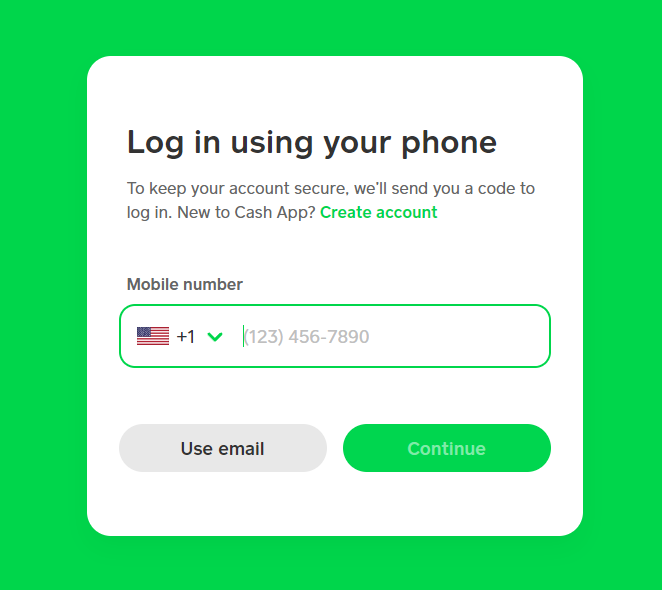Cash App, like any other financial service, is a target for scammers and hackers. The question of whether someone can hack your Cash App account with just your name is a common concern among users of the popular mobile payment service.
It’s important to understand the broader context of online security and how you can protect your account from potential threats as we will discuss all about it in this article.
What are the risks of Someone hacking your Cash App with your name?
The short answer is no, having just your name is not enough for a hacker to gain access to your Cash App account. While your name alone is not sufficient for a hacker to access your account, it is one piece of information that can be used in combination with other data to potentially compromise your account.
Hackers often use a variety of tactics to gather more information about a target, such as phishing, social engineering, and data breaches from other services.
How Hackers Could Potentially Access Your Account?

- Phishing: This involves tricking users into providing sensitive information through fake websites or emails that appear legitimate. If you provide your Cash App details on such a platform, hackers could gain access to your account.
- Social Engineering: Hackers could use your name to try and gather more information about you, such as your email address, phone number, or even guess your password based on personal details.
- Data Breaches: If you use the same password across multiple services and one of those services suffers a data breach, hackers could potentially access your Cash App account if they have your name and the breached password.
- Malware: If your device is infected with malware, hackers could potentially capture your keystrokes and gain access to your Cash App account when you log in.
How Can You Protect Your Cash App Account?

- Strong Passwords: Use a unique, strong password for your Cash App account that you don’t use anywhere else.
- Two-Factor Authentication: Enable two-factor authentication (2FA) on your Cash App account for an additional layer of security.
- Be Wary of Phishing Attempts: Don’t click on suspicious links or provide your Cash App details on any website or to any individual unless you are certain it’s legitimate.
- Regularly Monitor Your Account: Keep an eye on your Cash App balance and transaction history to spot any unauthorized activity quickly.
- Keep Personal Information Private: Don’t share personal information like your Cash App PIN or sign-in code with anyone.
- Secure Your Devices: Keep your devices updated with the latest security patches and consider using antivirus software to protect against malware.
- Educate Yourself: Stay informed about the latest scams and security threats. Cash App has a support page dedicated to safety and security that provides information on current scams and how to avoid them.
- Contact Support if You Suspect a Breach: If you think your account has been compromised, contact Cash App support immediately. Quick action can help minimize the damage and secure your account.
- Use Cash App’s Security Features: Cash App offers additional security features, such as the Security Lock, which requires your passcode for each payment, and the ability to disable your Cash Card if it’s lost or stolen.
- Be Careful with Public Wi-Fi: Avoid conducting financial transactions over public Wi-Fi networks, as these can be insecure. If necessary, use a VPN to encrypt your data.
- Secure Email Associated with Cash App: Ensure that the email account linked to your Cash App is also secure, as gaining access to your email could allow a hacker to reset your Cash App password.
can someone hack your cash app with your tag name?
Having access to someone’s $Cashtag alone does not provide enough information to hack into their Cash App account.
The concern about whether someone can hack your Cash App account using just your tag name ($Cashtag) is a valid one, given the rising incidents of online fraud and identity theft.

The $Cashtag is a unique identifier for individuals on the Cash App platform, which allows users to send and receive money. The $Cashtag is designed to be a public-facing username that allows other users to send money to the correct person without revealing sensitive personal information.
According to Cash App’s security practices, they have measures in place to protect users’ information and prevent unauthorized access.
However, it’s important to understand that while your $Cashtag itself isn’t enough to compromise your account, it can potentially be used as a starting point for social engineering tactics or phishing attempts.
For example, a scammer might use your $Cashtag to trick you into revealing more information, such as pretending to be Cash App support and asking for your password or other sensitive details.
Here are some steps to enhance the security of your Cash App account:
- Use a Strong Password: Create a unique and complex password for your Cash App account that isn’t easily guessable.
- Enable Two-Factor Authentication (2FA): Cash App offers two-factor authentication, which adds an extra layer of security to your account by requiring a code sent to your phone in addition to your password.
- Be Wary of Phishing Scams: Be cautious of unsolicited messages or emails claiming to be from Cash App. Always verify the authenticity of any communication before responding or clicking on links.
- Never Share Sensitive Information: Do not share your sign-in code, PIN, or any other sensitive information with others.
- Monitor Your Account: Regularly check your account for any unauthorized transactions and report them immediately to Cash App support.
